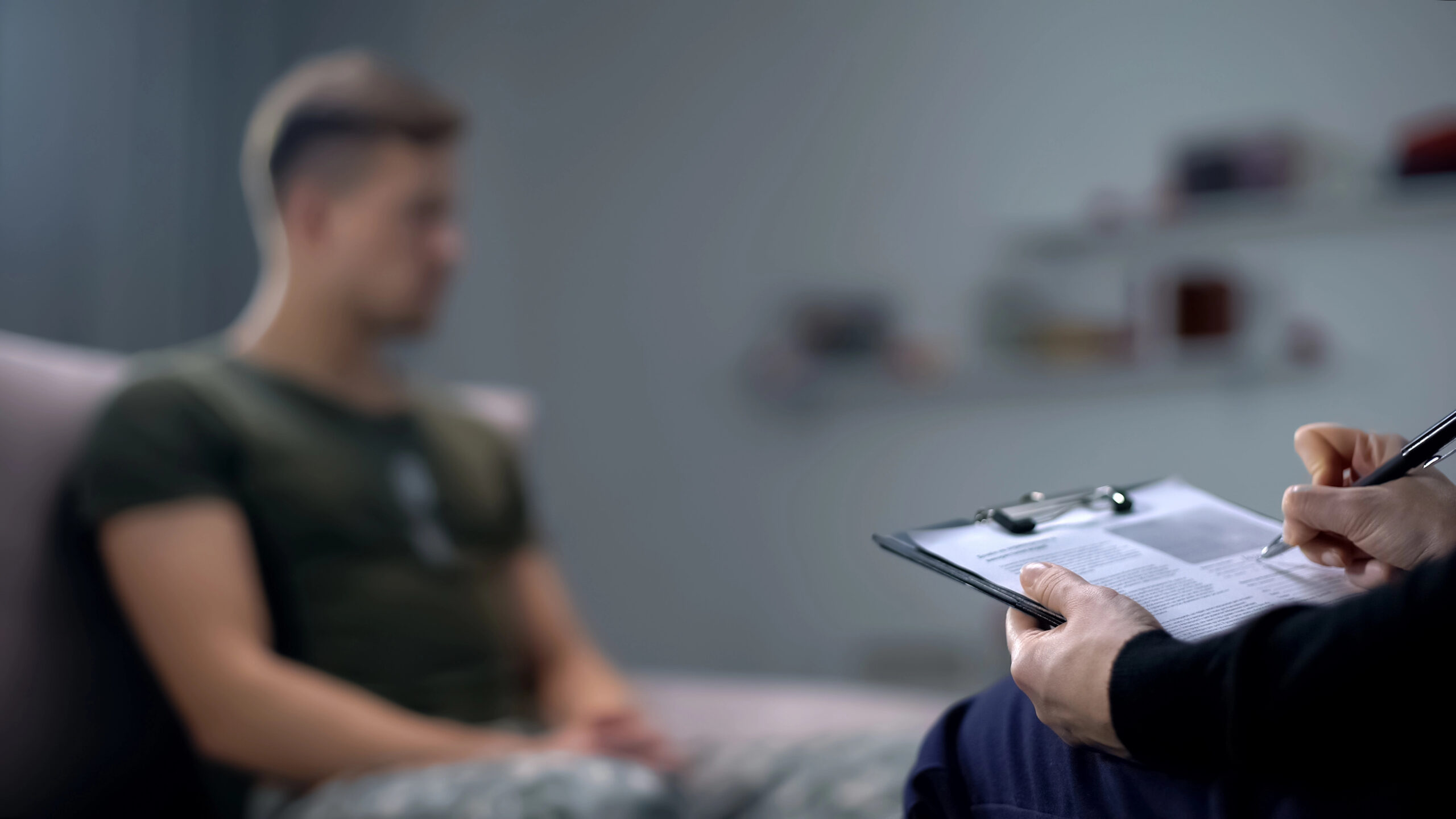Detoxing at home might sound like a simple and practical solution, but the truth is doing so can be a risky endeavor. Despite its popularity, at-home detox lacks the medical supervision and support to ensure a safe and effective outcome.
Learn why attempting detox at home is a bad idea and why seeking professional help is the best path to a healthier and happier you.
Understanding Drug and Alcohol Detox
Understanding drug and alcohol detox is critical to ensuring a successful and safe detoxification process, so seeking professional help is recommended. A professional detox program can provide medical supervision, support, and treatment to help individuals overcome their substance use disorder or addiction and start recovering.
But first, what is detox?
What Is Detox?
Detoxification (detox for short) removes harmful substances, such as drugs and alcohol, from the body. It also helps the body adjust to functioning without the drug. Chemical dependence is one of the major challenges to quitting certain substances, and detox helps keep you safe throughout the process. It is essential for people who want to overcome addiction and regain control of their lives. However, detoxification is not a one-size-fits-all process, which can vary significantly depending on:
- The substance
- The severity of the addiction
- The individual’s overall health
Detox doesn’t cure a substance use disorder (SUD). If a person doesn’t address the deeper issues of their dependence or addiction, they are likely to relapse. However, drug and alcohol detox is often a crucial first step in addressing a substance use disorder.
The Science Behind Detox
Chemical dependence is a serious and complex medical condition that occurs when an individual’s brain and body rely on a particular substance to function normally. This dependence can develop over time as the body adjusts to the presence of the substance and begins to require it to perform certain functions.
Once chemical dependence develops, overcoming it without professional help can be challenging. Treatment may involve a combination of detoxification, counseling, and medication. These all can be tailored to the individual’s specific needs and circumstances. Chemical dependence is a challenging but treatable condition, and seeking help is an important first step toward recovery.
The science behind drug and alcohol detox lies in how the body reacts to addictive substances. Over time, the body becomes accustomed to the presence of these substances and relies on them to function. When someone quits using these substances, the body experiences intense and uncomfortable withdrawal symptoms.
Drug and alcohol detox aims to help individuals safely and comfortably manage these symptoms so that they can address the deeper issues of addiction and work toward long-term recovery.
Risks of Home Detox
While drug and alcohol detoxification is a critical first step in the recovery process, attempting to detox at home can be dangerous and potentially life-threatening. Without proper medical supervision and support, individuals who attempt home detox may experience severe withdrawal symptoms that can lead to serious health complications depending on the type of drug they are detoxing from.
In addition, many individuals who attempt home detox are at a higher risk of relapse due to the discomfort and intensity of withdrawal symptoms. Therefore, they must seek professional help from a licensed and accredited addiction treatment facility that can ensure the detoxification is safe and effective.
Health Complications
Detoxing from certain substances can be life-threatening. Alcohol, for instance, can be deadly when detoxing without medical supervision. Can you imagine facing such complications alone at home?
Withdrawal symptoms can be incredibly difficult to manage, especially when attempting detoxification at home. Going through withdrawal without medical supervision can lead to serious health complications, even death.
For example, alcohol withdrawal can cause seizures, delirium tremens, and other life-threatening conditions. Opioids come with extremely painful withdrawal symptoms, although they are less deadly. Still, opioid withdrawal can lead to severe dehydration, which causes electrolyte imbalances and heart complications. Attempting detox at home can be tempting, but seeking medical assistance is important to ensure your safety and well-being.
Emotional Challenges
The emotional roller-coaster during detox is another concern. Feelings of anxiety, depression, or even suicidal thoughts can emerge. Without professional intervention, these emotions can be overwhelming.
In addition to physical health complications, detoxification from drugs and alcohol can create significant emotional challenges. Withdrawal symptoms can cause:
- Intense cravings
- Anxiety
- Depression
- Mood swings
These emotional challenges can be overwhelming and make staying committed to the detox process challenging.
The detoxing experience can also be isolating, as individuals may feel ashamed or embarrassed about their substance use. It’s important to seek support from friends, family, or a professional therapist during detox to help manage these emotional challenges.
Inadequate Support
At home, you might lack the support system crucial during detox. Even with caring family members, they might not understand the complexities of addiction and withdrawal.
Attempting to detox at home can also lead to inadequate support for individuals who need intensive interventions. While detoxing, it’s essential to have access to medical care, counseling, and other support services to manage withdrawal symptoms and increase the likelihood of a successful recovery. At home, individuals may not have access to these services, and this can lead to a higher risk of relapse or complications.
Without adequate support, individuals may struggle to manage their symptoms and may not have access to the resources they need to maintain long-term recovery. Seeking professional help and support during detox is critical to ensure that individuals receive the care they need to overcome their addiction.
Benefits of Professional Detox
If you or someone you know is struggling with addiction, seeking professional medical detox can be an essential step towards recovery. Detoxification is an important process of removing harmful substances from the body, and it can be a challenging and even dangerous process without proper medical care. What are the benefits of professional medical detox, and why is it crucial for those with substance use disorders to seek help from a trained medical team?
Medical Supervision
In a professional drug and alcohol detox setting, medical supervision plays a critical role in ensuring the safety and comfort of patients. Medical experts are available to monitor and manage withdrawal symptoms, which can be severe and even life-threatening in some cases. With their knowledge and experience, they can provide patients with the necessary medications and support to help ease withdrawal symptoms.
Additionally, medical supervision can also help prevent complications and provide immediate care if any issues arise. All these factors can give patients greater peace of mind and help them feel more confident in their decision to seek professional help for their addiction.
Mental Health Support
Counselors and therapists in detox facilities help patients navigate the emotional challenges of detox. This support can be invaluable and keep them focused on their recovery goals.
Patients undergoing medical drug and alcohol detox often face emotional and psychological challenges. To address these challenges, detox facilities have trained counselors and therapists who provide mental health support to patients. The support they offer can help patients navigate detox’s emotional ups and downs.
These mental health professionals help patients understand and manage their emotions, cope with anxiety and depression, and develop effective coping mechanisms. This support plays a crucial role in helping patients recover from addiction.
Environment Built for Recovery
Medical detox provides an environment specifically built for recovery. A safe and supportive space, these centers are free of the triggers and temptations that may be present at home. Patients can focus solely on their recovery and receive help to overcome addiction in a controlled and structured environment.
With medical professionals available around the clock, patients can rest assured that they receive the care and attention necessary to recover. The environment of a medical detox center promotes healing and growth, providing individuals with the best possible chance for lasting recovery.
Common Misconceptions About Medical Detox
Many misconceptions about detox can be misleading and dangerous. Some people believe medical detox is only for those addicted to drugs or alcohol, while others believe it cures addiction. What is the truth behind some of these common misconceptions about medical detox?
‘It’s More Natural at Home’
One common misconception about medical detox is that drug detox is more natural at home. However, this outlook is dangerous. While detoxing at home may seem more comfortable and less intimidating, it can be a potentially life-threatening decision. Detoxing from drugs and alcohol can lead to severe withdrawal symptoms that require immediate medical attention.
At-home detox might not come with the necessary medical supervision and support that can ensure the detox process is safe and effective. Therefore, people undergoing the process should seek professional help when considering detoxing from drugs or alcohol.
‘I Have Enough Willpower’
Many people assume that detoxing from drugs at home requires willpower and that they have it. However, an at-home detox is not as simple as just relying on determination. It involves a complex process that includes addressing substance withdrawal’s physical and emotional effects.
Attempting to wean oneself off addictive substances at home can be dangerous and even life-threatening. It is important to seek professional help for detox. Working with a medical professional can provide a safer, structured, and supportive recovery environment. Professional detox can also help lay a solid foundation for long-term recovery.
Drug and Alcohol Detox FAQs
Drug and alcohol addiction is a serious problem affecting many people globally. Detoxification is often the first step in the journey toward recovery and sobriety. However, many people hesitate to seek professional help because of the cost, inconvenience, or stigma associated with addiction. This is where home detox comes in. Here are some frequently asked questions about drug and alcohol detox:
Is it ever safe to detox at home?
Attempting to detox from drugs or alcohol at home can be dangerous and even life-threatening in some cases. The process involves addressing the physical and emotional effects of withdrawal, which can be complex and challenging.
Without professional medical supervision and support, it can be challenging to manage withdrawal symptoms, which can range from mild to severe. In severe cases, withdrawal symptoms can include seizures or convulsions, which can be fatal if not treated immediately. It is important to seek professional help for detox, which provides a more structured, supportive, and safer environment for recovery.
Which substances are riskiest to detox from at home?
Some of the riskiest substances to detox from at home include alcohol, benzodiazepines, and opioids. Alcohol withdrawal symptoms can range from mild to severe and can include tremors, seizures, and delirium tremens (DTs), which can be fatal in some cases. Benzodiazepine withdrawal can also be life-threatening and can cause seizures, psychosis, and other serious complications.
Opioid withdrawal is usually not life-threatening, but it can be extremely uncomfortable, and the risk of relapse is high. It is always best to seek professional medical help when detoxing from any substance, especially if you have a history of substance misuse or other health conditions.
How long does detox typically last?
How long detox lasts varies according to the substance used and other factors unique to the person undergoing the procedure. Detox can be challenging and uncomfortable as the body adjusts to functioning without the substance it is dependent on.
However, it is a crucial first step in recovery, so seeking professional medical help can make the experience safer and easier to manage. It is also important to note that detoxing from certain substances at home can be dangerous, so it is always best to seek help from a healthcare professional.
Are there natural ways to support detox?
There are natural ways to support detox, but it is important to keep in mind that these should complement, not replace professional methods. Consulting with a medical professional is always recommended before starting any detox program. They can guide you on safe and effective methods for your needs. Natural methods supporting detox include:
- Drinking plenty of water
- Eating a healthy and balanced diet
- Exercising regularly
- Practicing stress-reducing techniques such as meditation or yoga
Can I detox from multiple substances at once in a facility?
Detoxing from multiple substances can be complex and challenging, but it is possible in a professional facility. Most facilities can handle poly-substance detox. However, it is important to remember that each case is unique and requires individual assessment.
Consulting with a healthcare professional is always recommended before starting any detox program. They can advise you on what safe and effective methods for you and adjust them as needed. With the right support and care, a multi-substance detox can be successful, leading to a healthier and happier life.
Sources
- American Psychiatric Association. (2020, December). What Is Addiction? Retrieved from: https://www.psychiatry.org/patients-families/addiction/what-is-addiction. Accessed July 14, 2025.
- National Institute of Mental Health. (2023, September). Depression. Retrieved from: https://www.nimh.nih.gov/health/topics/depression/index.shtml. Accessed July 14, 2025.
- National Institute on Drug Abuse. (n.d.). Opioids. Retrieved from: https://www.drugabuse.gov/drugs-abuse/opioids. Accessed July 14, 2025.
- Substance Abuse and Mental Health Services Administration. (2015). Detoxification and Substance Abuse Treatment. Retrieved from: https://store.samhsa.gov/sites/default/files/d7/priv/sma15-4131.pdf RxList. (2018, February 6). Accessed July 14, 2025.
- Benzodiazepines Drug Class: Side Effects, Types & Uses. Retrieved from: https://www.rxlist.com/benzodiazepines/drug-class.htm. Accessed July 14, 2025.
Facility Staff
October 23, 2023
- Veterans and Military Mental Health Treatment Alexander County, NC
 In rural communities, mental health often stays hidden. Why are more veterans from Alexander County quietly seeking specialized care outside their hometown?
In rural communities, mental health often stays hidden. Why are more veterans from Alexander County quietly seeking specialized care outside their hometown? - Veterans and Military Mental Health Treatment Gaston County, NC
 More than 75% of post-9/11 veterans report pressure to appear “fine.” What happens when that pressure quietly turns into anxiety, withdrawal, or burnout in Gaston County?
More than 75% of post-9/11 veterans report pressure to appear “fine.” What happens when that pressure quietly turns into anxiety, withdrawal, or burnout in Gaston County? - Veterans and Military Mental Health Treatment Catawba County, NC
 Is a 15-minute VA check-in enough for complex trauma? Discover why some veterans are choosing a smaller, more personalized alternative.
Is a 15-minute VA check-in enough for complex trauma? Discover why some veterans are choosing a smaller, more personalized alternative. - Mental Health Outpatient Treatment Options Buncombe County, NC
 With nearly 50 suicides annually and rising youth risk, what is driving the mental health emergency in Buncombe County?
With nearly 50 suicides annually and rising youth risk, what is driving the mental health emergency in Buncombe County? - Mental Health Outpatient Treatment Options Forsyth County
 Residents average 4.4 poor mental health days each month. What’s driving the surge in emotional strain across Forsyth County?
Residents average 4.4 poor mental health days each month. What’s driving the surge in emotional strain across Forsyth County? - Veterans and Military Mental Health Treatment Mecklenburg County, NC
 You’ve mastered high-performance environments. But what happens when your nervous system won’t power down? Explore performance-based recovery designed for modern veterans.
You’ve mastered high-performance environments. But what happens when your nervous system won’t power down? Explore performance-based recovery designed for modern veterans. - Veterans and Military Mental Health Treatment Wake County NC
 Why are Wake County veterans driving three hours west for mental health care? Discover what a 16-person trauma program in the mountains offers that larger systems can’t.
Why are Wake County veterans driving three hours west for mental health care? Discover what a 16-person trauma program in the mountains offers that larger systems can’t. - Mental Health Outpatient Treatment Options Guilford County, NC
 Over 15% of adults in Guilford County have unmet mental health needs. What outpatient treatment options are available?
Over 15% of adults in Guilford County have unmet mental health needs. What outpatient treatment options are available? - Mental Health Outpatient Treatment Options Mecklenburg County, NC
 Over 100,000 residents need mental health support. Here’s how outpatient care in Mecklenburg County makes treatment more accessible.
Over 100,000 residents need mental health support. Here’s how outpatient care in Mecklenburg County makes treatment more accessible. - Mental Health Outpatient Treatment Options Wake County NC
 One in five North Carolina residents faces a diagnosable mental health condition each year. Discover why many still do not seek help… and how outpatient care in Wake County can close that gap.
One in five North Carolina residents faces a diagnosable mental health condition each year. Discover why many still do not seek help… and how outpatient care in Wake County can close that gap.
Recommended Blogs


Veterans and Military Mental Health Treatment Alexander County, NC
Unearthing Resilience: Why Alexander County Veterans Head West for Specialized Healing Alexander County is a…

Veterans and Military Mental Health Treatment Gaston County, NC
The Anchor’s Strength: Reinforcing Mental Wellness for Gaston County Veterans Gaston County is a place…

Veterans and Military Mental Health Treatment Catawba County, NC
The Industrious Soul: Strengthening Veteran Resilience in the Catawba Valley Is a 15-minute VA check-in…







